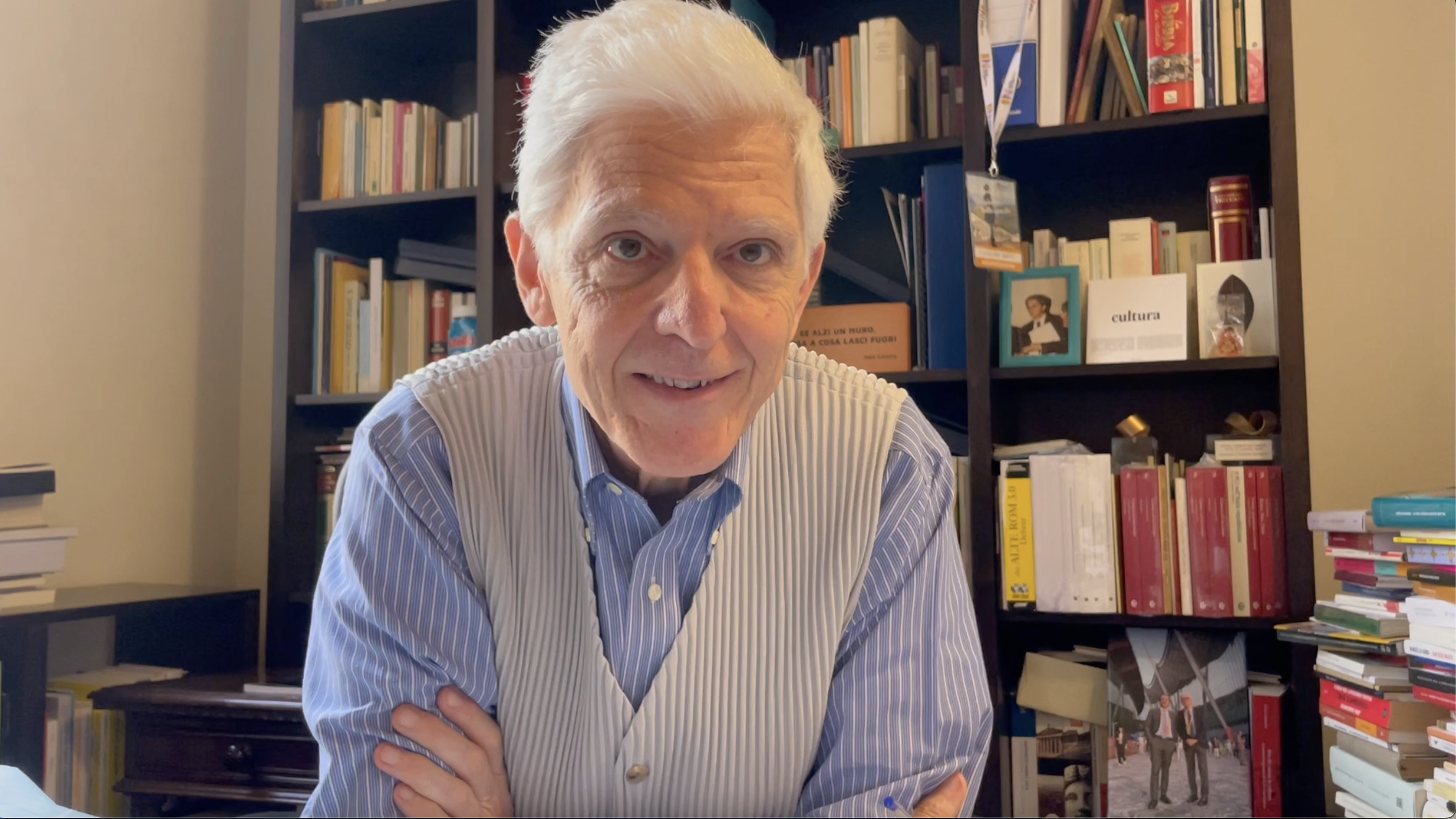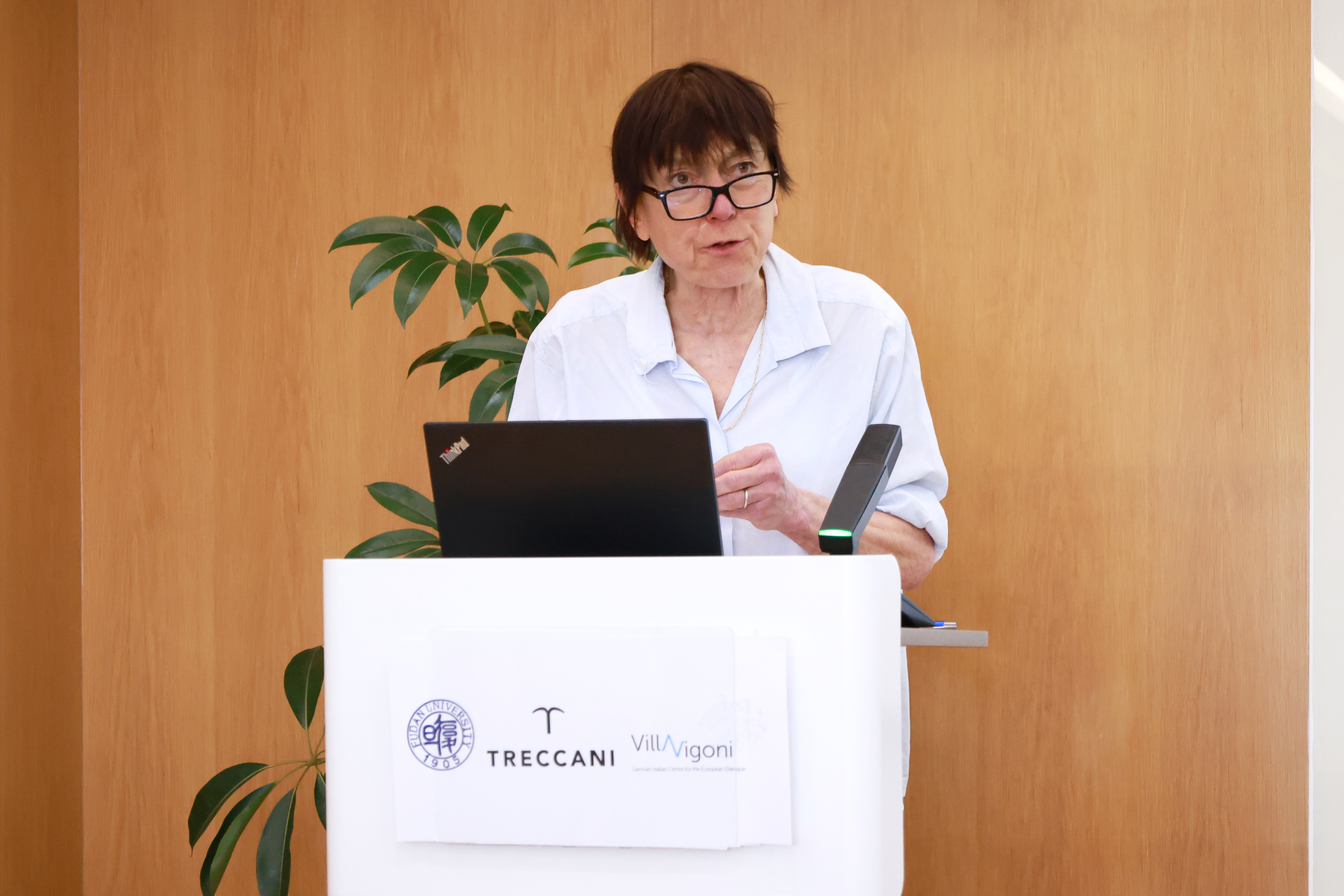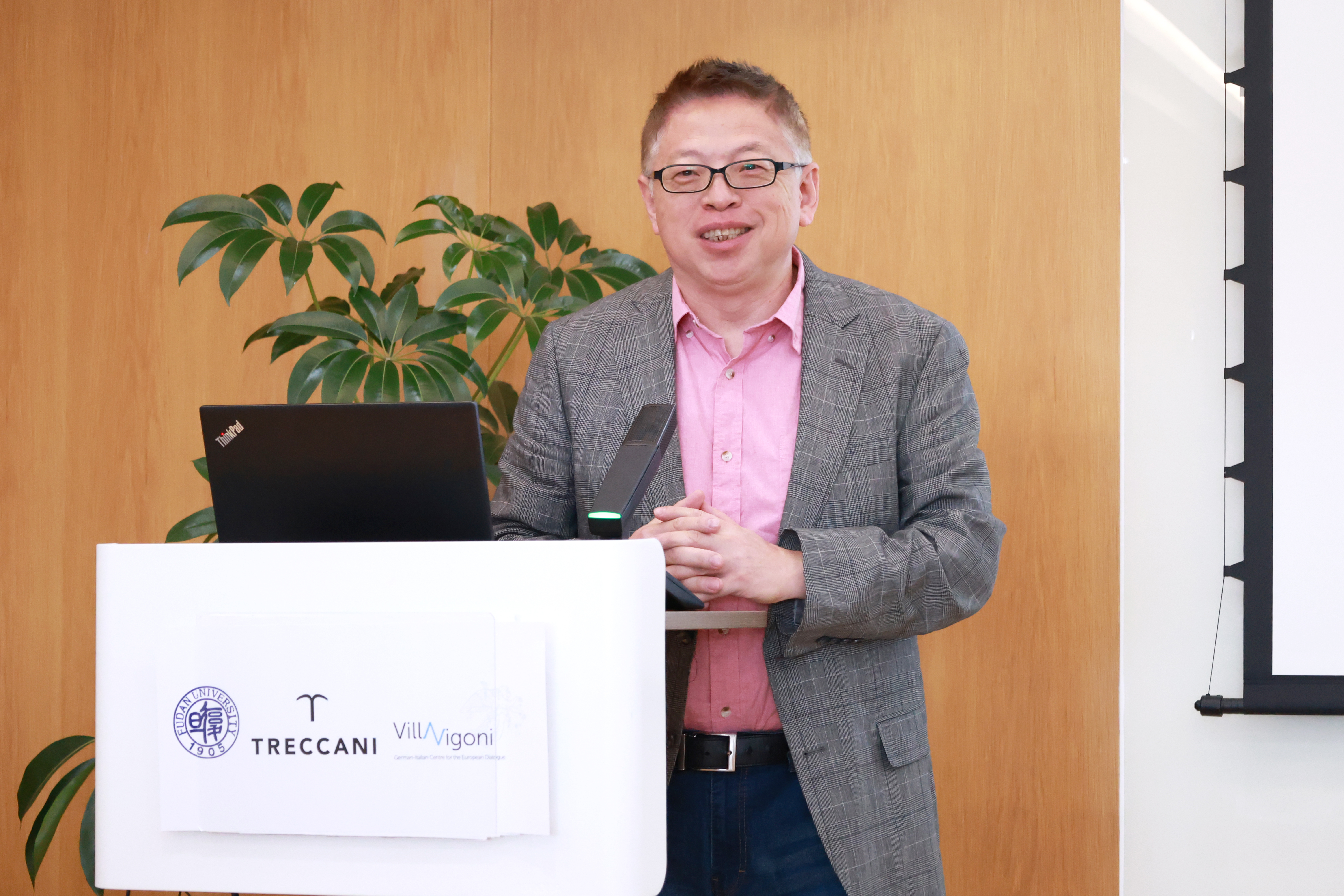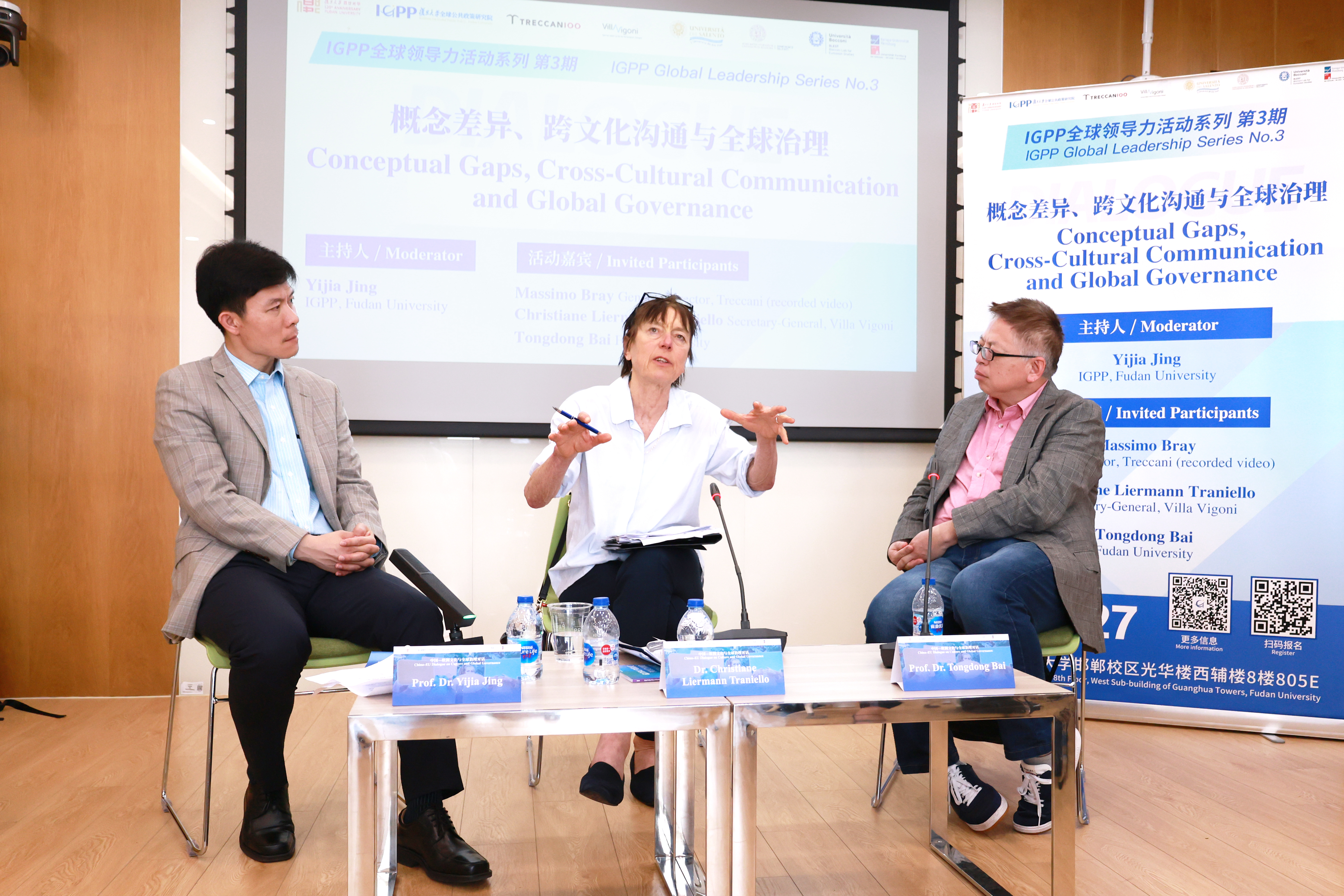
On May 27, 2025, the Fudan Institute for Global Public Policy (IGPP) successfully hosted the 3rd event of the Global Leadership Series on the theme of “Conceptual Gaps, Cross-Cultural Communication and Global Governance.” This event maintained a strong focus on critical global issues, with a particular emphasis on deep cultural cognitive differences and communication barriers in global governance practice.

Three distinguished guests attended the event: Mr. Massimo Bray, General Director of the Treccani Institute and former Minister of Cultural Heritage and Tourism of Italy; Dr. Christiane Traniello, General-Secretary of Villa Vigoni (the Germany–Italy European Dialogue Centre); and Professor Tongdong Bai from School of Philosophy at Fudan University. The dialogue was moderated by Dean Yijia Jing of IGPP. Over 40 guests participated in the event, representing Fudan University, University of Hamburg, Bocconi University, University of Salento, and University of Bologna.

In his opening remarks, Professor Jing pointed out that the challenges in global governance arise not only from institutional design or unequal distribution of interests but also from structural barriers rooted in differing value systems and cultural cognition. Therefore, acknowledging and understanding these “conceptual differences” is essential, with dialogue serving as the foundation for resolving disputes and advancing truly effective global cooperation.

In his video address, Director Bray underscored the importance of cultural diplomacy, asserting that culture should be seen as a global public good rather than a tool for competition among states. He emphasized that political and economic measures alone are inadequate to tackle global challenges such as climate change and technological governance; culture is an essential force for building consensus and fostering cooperation.

Following this, Secretary Traniello highlighted the distinctive significance of the “Villa Vigoni method,” which fosters genuine understanding and cooperation through historical reflection and cross-cultural curiosity. She noted that Italy and Germany, once adversaries, chose after the war to jointly build peaceful and collaborative institutions—this spirit forms the foundation of Villa Vigoni’s role in the trilateral dialogue. She expressed high praise for the cooperation with Fudan University and the Treccani Institute and expressed hope that the dialogue would further inspire youth engagement and creativity in international exchanges.

Professor Bai spoke from the perspective of the ancient Chinese concept of “Huaxia,” emphasizing that China historically achieved multi-ethnic national unity through a shared civilizational lifestyle. He further proposed that Confucian political philosophy offers a viable alternative to liberal democratic systems, which are currently grappling with populist crises. He advocated for developing a hybrid political system grounded in liberty that ensures electoral legitimacy and representative institutions while incorporating limited meritocratic governance to balance popular will with effective administration.
In the second phase of the dialogue, Professor Jing invited the guests to discuss Samuel Huntington’s “Clash of Civilizations” theory in the context of the current global geopolitical landscape. Secretary Traniello drew on the German cultural tradition, explaining that postwar Germany cultivated a deep respect for civilizational diversity through institutional reflection. She also referenced the French philosopher Montesquieu’s critique of the “linear progress model,” advocating instead for understanding cultural development through pluralistic and parallel perspectives.
Professor Bai responded by challenging Western assumptions that the Confucian tradition is “deep-rooted,” emphasizing its inherent flexibility. He noted that Confucian political philosophy does not reject the liberal elements of liberal democracy but seeks to amend its democratic aspects—an approach particularly valuable amid the growing crisis of democratic trust.

During the third phase, a lively Q&A session, scholars and students from Fudan University, Italy, and Germany engaged actively with the guests. Professor Bai addressed concerns about the feasibility of “limited meritocratic governance,” highlighting that term limits and local evaluations can prevent it from devolving into elite autocracy. Secretary Traniello encouraged both Europe and China to promote institutional innovation at the cultural level to better address global diversity challenges and to build a truly fair and sustainable framework for global communication.
The dialogue concluded successfully in a deep, frank, and constructive atmosphere. It underscored that the cultural foundations of “global governance” are not self-evident but urgently require renewed interdisciplinary and cross-cultural understanding and redefinition.




